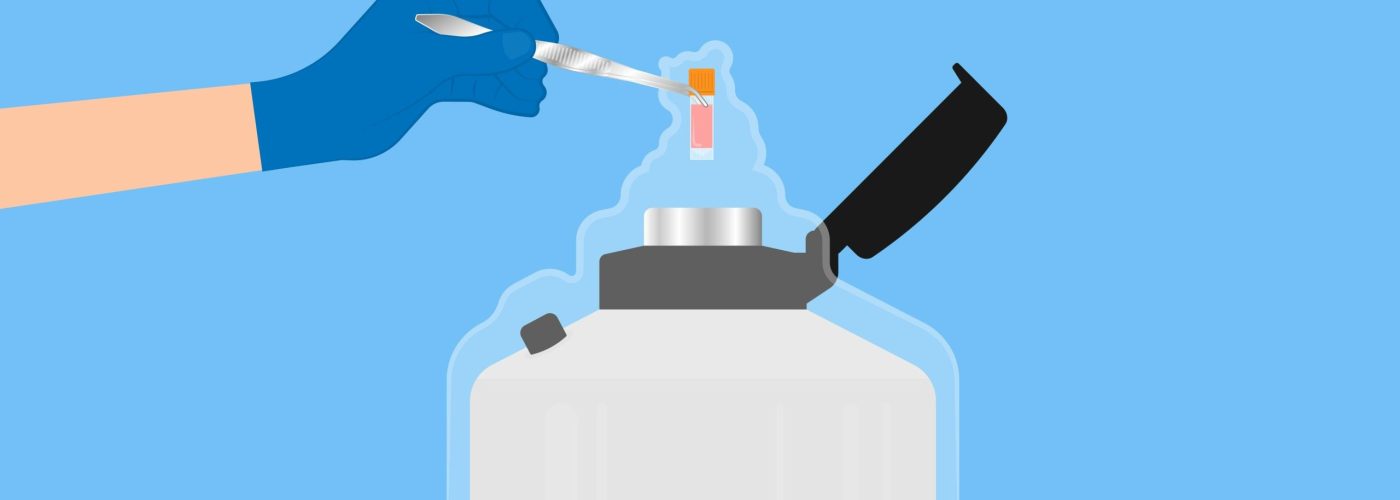
Experts agree that the more eggs you get, the better. Obtaining multiple eggs in a single cycle, whether undergoing IVF or egg freezing , is important for several reasons.
- Not every egg will fertilize successfully. On average, we normally expect 70-80% of eggs to fertilize during an IVF cycle.
- Some embryos do not develop normally. Embryonic development can halt for many reasons, such as poor egg quality or the presence of genetic abnormalities. Some embryos become non-viable during the first five days of life, which means it is very unlikely that they would be able to achieve a successful pregnancy.
- Even excellent-grade blastocysts may not implant. Although success rates continue to improve, there is always the possibility that an embryo will not implant into the endometrium when transferred.
In this article, we examine the egg collection process in detail, including what is the average number of eggs retrieved during IVF and how to increase your chances of higher egg retrieval .
Egg retrieval process
The objective of an egg collection procedure is to retrieve mature eggs from the ovaries by aspirating fluid from ovarian follicles.
-
Ovarian stimulation: In a natural menstrual cycle, one ovarian follicle releases a single egg from the ovaries. Prior to egg retrieval, you will take medication to stimulate your ovaries to grow multiple eggs.
-
Monitoring: While taking hormonal medication, you will attend your clinic for monitoring ultrasound scans to track the growth and development of your ovarian follicles. You may also require blood tests.
-
Trigger injection: When your follicles have reached an appropriate size, you will self-administer an injection, called a ‘trigger shot’, to prepare the eggs for collection. Your clinic will provide guidance to help you prepare for your egg collection, such as not eating or drinking for at least 6 hours before the procedure.
-
Sedation: Once you arrive at your clinic, an anesthetist will give you sedation so you do not feel any pain or discomfort during the procedure.
-
Transvaginal ultrasound: An ultrasound probe is inserted into the vagina so the clinician performing your procedure can visualize the ovaries and the follicles inside.
-
Needle insertion: A needle is guided through the vaginal wall and into each follicle containing an egg. In the process known as follicular aspiration, a needle punctures each of the mature follicles and drains the fluid inside.
-
Egg retrieval: Embryologists take the fluid to the laboratory where they identify and separate the eggs. If you are having In Vitro Fertilisation (IVF) treatment , the eggs will remain in the laboratory to be fertilised with sperm and incubated. If you are having egg freezing treatment , the eggs will be cryopreserved through vitrification and stored.
-
Recovery: After egg retrieval, you will have time to rest while your medical team monitors you closely to ensure you are feeling well and have recovered from sedation.
Factors affecting the number of eggs retrieved
Many factors can influence the number of eggs retrieved during your egg collection procedure. Some are linked to your IVF stimulation drugs , so it is extremely important that you choose a clinic that understands your specific needs and personalizes your treatment protocol to your requirements.
- Age: As a woman ages, her egg supply declines, which may result in fewer eggs retrieved during IVF .
- Ovarian reserve: Women with a low ovarian reserve may have fewer eggs retrieved during IVF.
- Lifestyle factors: Smoking, excessive alcohol consumption, and a poor diet can also impact the number of eggs retrieved during IVF .
- Response to ovarian stimulation medication: The amount of medication used to stimulate the ovaries can impact the number of eggs retrieved . Women who do not respond well to medication may have fewer eggs retrieved .
- Medical conditions: Certain medical conditions, such as PCOS and endometriosis , can affect the number of eggs retrieved during IVF .
- Previous surgery: Women who have undergone reproductive surgery may have fewer eggs retrieved during IVF .
At IVI, we ensure our patients have a complete fertility assessment and pre-treatment tests before planning their treatment cycle. If we identify any factors that could impact the number of eggs we expect to retrieve , these will be explained in detail so that you fully understand your chances of success and what to expect before you decide to start your treatment cycle.
Number of eggs retrieved during IVF by age
Age matters during IVF because it impacts the number of eggs you will typically need to retrieve in order to generate one or more good-quality blastocysts. As women get older, the number of eggs they require increases.
Age is the single most crucial factor in a woman’s fertility. Women are born with all the eggs they will ever have, which gradually decreases throughout a woman’s life. For this reason, your age may affect the number of eggs you are likely to retrieve during a single IVF cycle. Although it is important to keep in mind that many other factors besides your age can affect the number of eggs retrieved during IVF.
Various studies have examined the question of how many eggs need to be retrieved depending on a woman’s age. Generally, retrieving between five and 14 eggs is considered adequate for women under 35. For a woman who is 38, this number increases to between 10 and 34.
Egg quality and quantity
It is important to understand that egg quantity and egg quality are different things. Egg quality refers to an egg’s ability to be fertilized, grow into a healthy embryo and result in a successful pregnancy. What this means is that good-quality eggs have a better chance of fertilizing and developing normally, and the resulting embryos are also more likely to implant.
As a woman ages, the quality of her eggs naturally declines, making it more challenging to achieve a successful pregnancy. However, genetics and lifestyle, regardless of age, can also impact egg quality.
While both egg quality and quantity are important factors, egg quality has a greater impact on a woman’s ability to conceive . Poor-quality eggs are less likely to fertilize and develop into healthy embryos, even if a woman has a large number of eggs. A woman with a smaller number of high-quality eggs may have a better chance of getting pregnant .
Chances of higher egg retrieval
Although it is impossible to guarantee a specific number of eggs upon retrieval, there are steps you can take to maximize your chances:
- Eat a well-balanced diet : Top up on fresh fruits and vegetables and choose whole-grain foods, like quinoa and brown rice, lean protein, like poultry and fish, and foods rich in healthy fats, like avocados and nuts. Many experts recommend following a Mediterranean diet .
- Exercise regularly: A low-impact exercise regimen reduces stress, improves cardiovascular health and can help you maintain a healthy weight.
- Keep your body mass index (BMI) within a healthy range: Staying within the recommended BMI range for your height helps to ensure your treatment has the best chance of success.
- If you smoke, stop: The link between infertility and smoking tobacco is well-established. We strongly advise quitting smoking if you are trying to conceive.
- Avoid alcohol: Studies have shown alcohol can negatively affect egg quality. It is highly recommended that you limit or abstain from drinking alcohol before and during your treatment.
Risks and side effects of egg retrieval
Egg collection procedures are low-risk , minimally invasive , and complications are rare . The short surgical procedure, during which your anaesthetist will sedate you intravenously, is relatively quick and usually takes around 30 minutes. After your procedure, you can usually continue your day as normal. But, due to the nature of the procedure, there are some common side effects.
Side effects of egg retrieval may include:
- Experiencing some bloating, or feeling full: Before your egg collection, you may feel bloated as your ovaries expand due to the growing follicles. This may continue after retrieval but should subside as your ovaries return to their normal size.
- Light spotting: It is normal to experience light vaginal bleeding after your egg retrieval. Using pads or sanitary towels is safe, but you should avoid tampons. If the spotting continues for more than a few days or becomes heavier, you should contact your clinic.
- Feeling constipated: Constipation is relatively common after an egg collection procedure. It can occur for a combination of reasons. If you are feeling constipated, it is best to stick with natural remedies , such as drinking lots of water and boosting your fiber intake by eating fibrous foods such as oats, lentils, kidney beans and chia seeds.
- Menstrual-like cramping: You will likely experience cramping similar to period pain after your egg collection. It may last for a few days. It is safe to take paracetamol for pain relief.
In a small number of cases, complications develop after an egg retrieval procedure. These include bleeding and infection. You should contact your clinic immediately if you experience any of the following symptoms:
-
- Extreme nausea or faint-headedness
- Sharp abdominal or pelvic pain
Extreme bloating or abdominal swelling- Heavy bleedin
- Vomiting
- High temperature
- Breathlessness
Your chances of success
We understand that egg retrieval is a significant moment in a fertility treatment journey. It is normal to want to know as much as possible about your personal chances of success and retrieving an adequate number of eggs. At IVI, our fertility specialists work with you to gain a detailed understanding of your unique medical requirements. We will always be completely transparent about your chances of success and help you achieve the best possible outcome. If you’d like to speak to a member of our team, please don’t hesitate to contact us .








Comments are closed here.